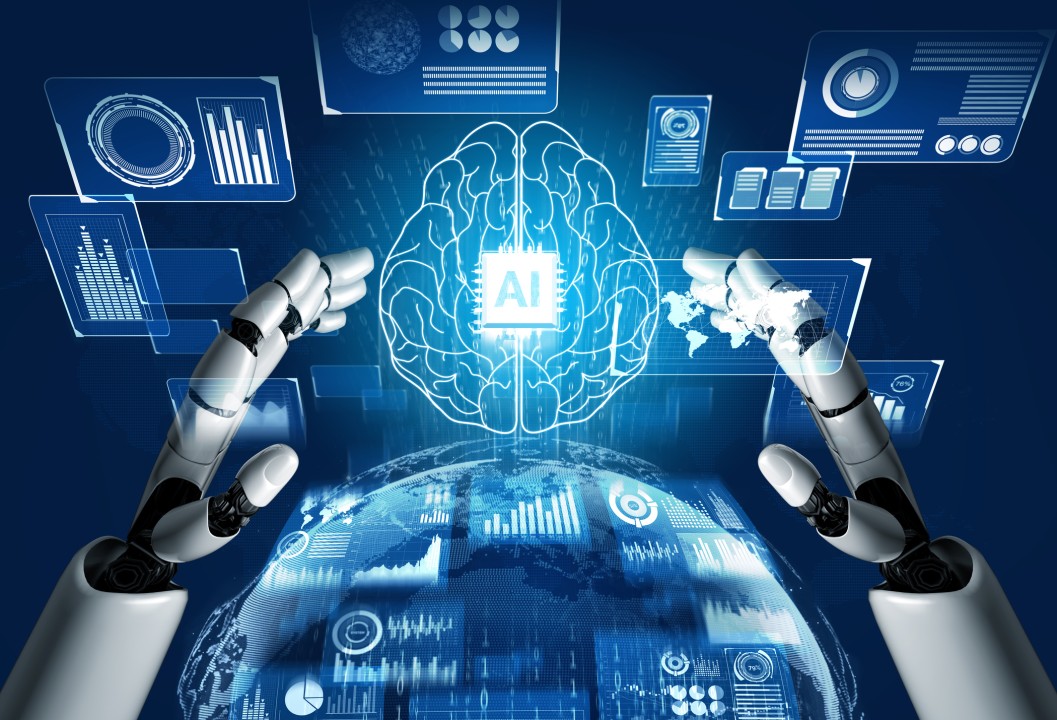
Welcome to the future of hiring, where artificial intelligence (AI) is not just an assistant but a game changer in the recruitment landscape. Imagine a world where the most tedious and time-intensive parts of hiring are handled not by human hands but by algorithms and intelligent systems. This is not the plot of a sci-fi novel; it’s the reality of AI recruiting today. In this blog, we’ll uncover how AI is revolutionizing the way we find, attract, and hire talent. From streamlining candidate sourcing to enhancing the overall candidate experience, AI’s role in recruitment is transformative and packed with potential. Join us as we delve into the innovative ways AI is reshaping recruitment processes, making them more efficient, fair, and tailored to the modern workforce’s needs.
Streamlining Candidate Sourcing
One of the most time-consuming aspects of recruitment is sourcing candidates. AI recruitment technologies have dramatically changed this by automating the search and identification of potential candidates. AI can scan vast databases and online profiles through sophisticated algorithms to find individuals whose skills and experiences match the job requirements. This automation not only speeds up the process but also expands the talent pool by identifying candidates who may have been overlooked using traditional methods.
Enhancing Candidate Screening
The screening process involves sifting through numerous applications to identify the most qualified candidates. AI recruiting tools have introduced a level of efficiency and accuracy that was previously unattainable. By employing natural language processing and machine learning, AI can quickly analyze resumes and cover letters, assessing a candidate’s suitability for a role based on predetermined criteria. This capability ensures that recruiters spend their time engaging with candidates who are the best fit for the position.
Improving Candidate Engagement
Candidate engagement is crucial in today’s competitive job market. AI recruitment platforms are equipped with chatbots and automated messaging systems that can interact with candidates in real time, answering questions, providing updates, and even scheduling interviews. This constant communication keeps candidates informed and engaged throughout the recruitment process, improving their overall experience and perception of the hiring organization.
Reducing Bias in Hiring
One of the most significant advantages of AI in recruiting is its potential to reduce unconscious bias. A recruiter’s inherent biases can influence traditional recruitment processes, whether they’re aware of it or not. When properly designed, AI systems can make decisions based on data and predefined criteria, ignoring factors such as age, gender, or ethnicity. This objectivity can lead to more diverse workplaces and help organizations tap into a wide range of talents and perspectives.
Predictive Analytics for Better Decision-Making
AI recruitment doesn’t just streamline processes; it also provides valuable insights that can inform decision-making. Through predictive analytics, AI can help forecast hiring needs based on company growth, turnover rates, and market trends. Additionally, it can predict a candidate’s job performance and likelihood of accepting a job offer, enabling recruiters to make more informed decisions and tailor their approaches accordingly.
Personalizing the Recruitment Experience
AI technologies are adept at handling vast amounts of data, which can be leveraged to personalize the recruitment experience for each candidate. AI can customize job recommendations, communication styles, and interview questions by analyzing a candidate’s interactions and preferences. This level of personalization not only improves the candidate’s experience but also enhances the employer’s brand.
Continuous Learning and Improvement
Perhaps one of the most exciting aspects of AI in recruiting is its ability to learn and improve over time. Machine learning algorithms analyze the outcomes of their decisions and continuously refine their processes. This means that AI recruiting tools become more effective and efficient as they are used, learning from each interaction to provide better results in the future.
Ethical Considerations and Transparency
While the benefits of AI in recruitment are clear, it’s important to address the ethical considerations and the need for transparency. Concerns about privacy, data security, and the potential for algorithmic bias are valid and require ongoing attention. Organizations must ensure that their AI recruiting tools comply with regulations, use data ethically, and operate transparently. By doing so, they can maintain trust with candidates and uphold their reputations.
Preparing for an AI-Driven Future
As AI continues to transform the recruitment process, organizations must stay informed about the latest developments and consider how these technologies can be integrated into their hiring practices. This involves investing in AI tools and training HR professionals to work effectively with these technologies. By embracing AI, companies can enhance their recruitment processes, making them more efficient, equitable, and effective.
Wrapping It Up
AI recruiting represents a significant leap forward in how organizations approach talent acquisition. By automating routine tasks, enhancing decision-making, and improving candidate engagement, AI has the potential to revolutionize the recruitment process. However, it’s essential to navigate this transition thoughtfully, considering the ethical implications and ensuring that AI tools are used to complement human judgment, not replace it. As we look to the future, the role of AI in recruitment is poised to grow, offering exciting opportunities for organizations willing to embrace this change.
